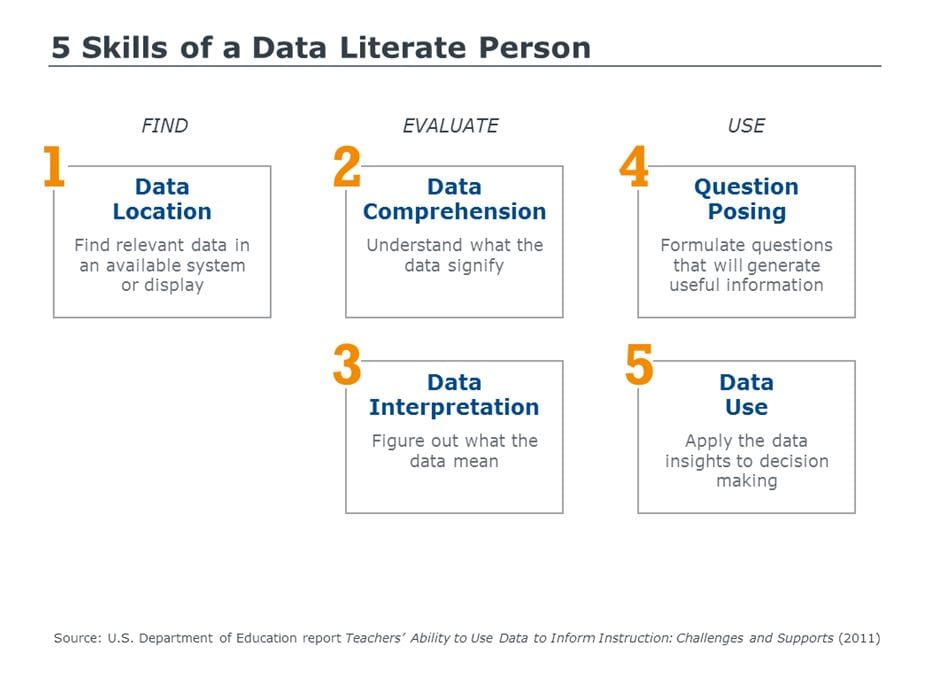Data is qualitative or quantitative values that correlate to pieces of information. You can collect, measure, analyze, manipulate, and share data to understand information. Watch this video from the University of Guelph Libraries to learn more about the types of data and when we use data.

Data literacy is the ability to find, evaluate, and use data. Becoming data literate will help you understand how, when, why, and which data to use. There are 5 skills that a data literate person should learn:

There are multiple places that you can look at to find datasets and statistics:
Evaluating data sources will help you understand whether the data is relevant to your research and whether it is credible for use. To determine relevance, ask yourself these questions:
Understanding any assumptions and biases involved in the creation of data frames whether the data is usable and trustworthy. Ask yourself these questions to decide whether data is usable: